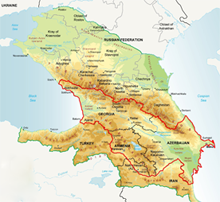Sustainable Tourism Management

SuToMa – Development of new modules
for international bachelor and master
programmes in sustainable tourism
management
This multi-country project…

is designed to modernize curricula in sustainable tourism management (SuToMa) in selected higher education institutions (HEI) in Azerbaijan, Armenia and Georgia. Tourism is a regional priority for the Caucasus. The project focuses on the development of new study modules and teacher trainings in SuToMa, a hitherto underdeveloped field in all three countries. The new modules cover innovative topics, such as the integration of theory and praxis, intercultural communication, E-learning and IT technologies, and will be implemented in existing as well as new BSc. and MSc. study programmes, and accredited with ECTS. The interdisciplinary approach to SuToMa is reflected by involving HEI from different academic fields such as agriculture, tourism and business studies.
The Caucasus region…
is politically diverse but should be touristically jointly developed. Thus, the project is designed to foster regional networking and mutual understanding, and the cooperation between the EU and its partner countries. Training and the development of study modules in intercultural communication will support the establishment of enduring partnerships.
As project outcomes…
a common understanding of sustainability and regional development will be achieved, modules on SuToMa will be created according to the Bologna standards, and new methods and materials for teacher and tutor training will be introduced. The practical relevance of study programmes is enhanced by the formal integration of practical placements in the curricula, in close cooperation with tourism businesses and NGOs.
Regular monitoring of milestones …
guarantees the accomplishment of the aims. The implementation of an E-learning platform assures communication between the partners, as well as the dissemination of results. The sustainability of the project will be secured by strengthening the international academic cooperation on a permanent base, by developing comparable qualification standards in SuToMa and by the accreditation of the modules.
